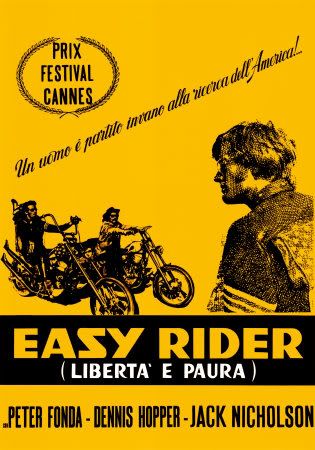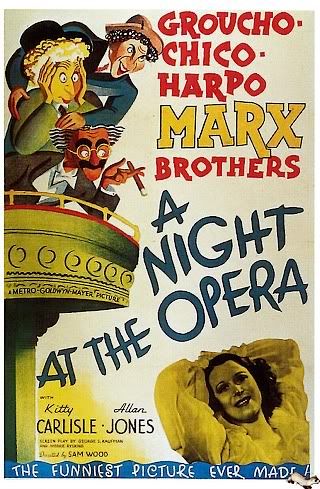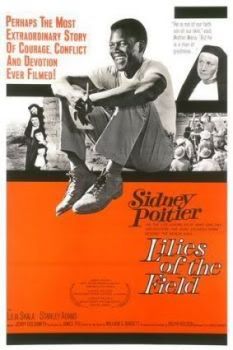
(8) Easy Rider (1969)
Directed: Dennis Hopper
Starred: Peter Fonda, Dennis Hopper
They take drugs, ride around on motor cycles and get blown away by rednecks on the highway. It set the stage for the new breed of independent film and new style of film making. It represented in the first clear step away form the Hollywood movie making system. It embodied the ideals and ambiance of the 60s counter culture. It was really cool when I was a kid.

(9) A Night at the Opera (1935)
Directed:Sam Wood
Starred: The Three Marx brothers, (Groucho, Harpo, Chico)
Margret Dumont, Kitty Carlisle
The finest film by the Marx Brothers the first of only two produced by Irving Thalberg. This one and its' twin A Day at the Races stand head and shoulders above everything the Marx Brothers did, and I am a total fan of the Marx brothers but I say that without hesitation. One of the finest comedies in American cinema, it transcends the category of comedy and features some fine Operatic performances. Thalberg was instrumental in re-making the Marx's with these two films. He proved that less is more by cutting the number of one-liners in half, and giving a new organization and attention to plot to the film, and making the brothers into characters that represented protagonists for a worth cause, all of which flew in the face of Groucho's theory of comedy but he was totally won over by the result. The films include generous portions of opera,
Giuseppe Verdi's Il Trovatore.

(10) Lillie's of the Field (1963)
Directed: Ralph Nelson
Starred: Sidney Poitier, Lilia Skala, Lisa Mann.
This is an innocent little film. No car chases,nothing happens. A guy needs work some nuns hire him to build a chapel. They like him so they find reason to keep him on. He keeps wanting to leave and eventually he does. Beneath this seeming noting of a plot is a fine story. It's not a big psychological drama but does certer around an interesting battle of the wills. At a time when the civil rights movement was brewing, a black man pitting his will as a workman being exploited agaisnt that of the mother Superior needs a workman to give more than she can pay him for. It turns out that the nuns had escaped from communist oppression in Eastern Europe and had endured even more hardship then the black American carpenter had. In the end both the nuns and the carpenter grow to love and respect each other. The beset scene is the last one, where Poitier get's the nuns to singing a gospel song he taught them, and as they get wrapped up in it he just walks out. The Mother superior realizes he's leaving but doesn't try to stop him. He's still singing all the way to his car, then he get's in and leaves. No good bye, no words of parting but it's clear the reverend mother will miss him but is willing to let him go.

No comments:
Post a Comment